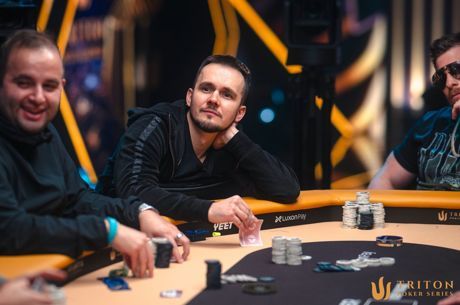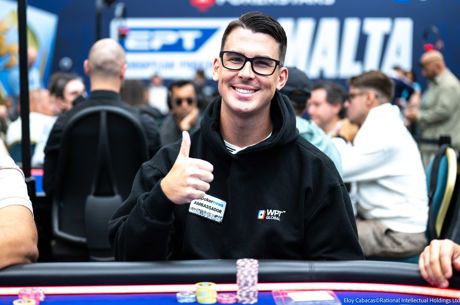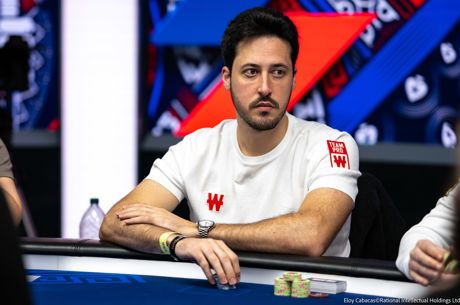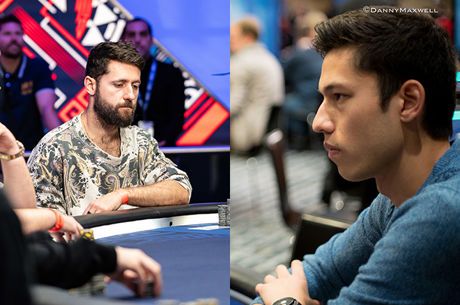Deconstructing a World Series of Poker Circuit Ring Win, Part 2

Every year, thousands and thousands of players enter World Series of Poker Circuit events hoping to walk away with a gold ring as proof of triumph. A few hundred will do so.
This year, I was one of them. I was fortunate enough to win the $600 H.O.R.S.E. at WSOP Circuit Horseshoe Hammond, located just outside of Chicago. For topping a field of 85 players, I earned just over $14,000 in prize money and my first piece of WSOPC hardware after firing many bullets and having a few close calls over the years.
Last week, I broke down some of my formula for success playing in each game of the H.O.R.S.E. mix. Maybe I should just examine more limit strategy — hey, I did follow the win up with a successful mixed-game cash session — but I don't really feel all that confident going far into the weeds on games where I have little experience. Besides, as I mentioned last week, limit edges are about grabbing an extra bet here and saving an extra one there, so it's not exactly thrilling stuff.
Instead, I thought I'd zoom back and discuss a little bit of the "how." That is to say, how I got to the spot where I've had the small about of success I've had on the Circuit, as well as some of the things that I believe make hitting a Circuit stop one of the most fun and profitable things a poker player grinding small-stakes tournaments can do.
Play Exploitable Poker
Doug Polk would tell you to just play fundamentally correct theoretical poker and not worry about anything else. I love Doug Polk, but I'm going to tell you something completely different: in most cases, I think playing extremely exploitable poker is going to be the route that carries you to the most expected value in these small-stakes tournaments.
Now, I'll give the caveat that I think if you want to become Ali Imsirovic or Alex Foxen and rise from the Circuit events to playing $100Ks, this is definitely not the best way to practice absolutely maximizing yourself into the best player you can be. If that's what your dream is, keep working on game theory optimal strategy until you become a German robot.
If you just want to have success in these small-stakes games, though, I think playing an extremely exploitable strategy works the best. Make exploitable folds and exploitable thin value bets. Would a great player see through some of these actions and punish the hell out of you? Absolutely. But the point is that very few of your opponents in these events will be great players.
Near the top of your range but see zero chance your opponent is bluffing? Go ahead and bet-fold. Want to squeeze value out of your tens on a jack-high board on the river? Bet a quarter of the pot. Have a party because these players aren't going to punish you most of the time.
Obviously, if you're sitting in a main event and three tough Circuit regs are seated on your left, a lot of this goes out the window. You'll have to adjust but that's the whole point: adjusting to your opponents will yield more profits for you than trying to play theoretically perfect poker at this buy-in level.
Make Friends
Is this poker strategy? I think it actually might be.
I have to give a special shout to one of the Circuit's most recognizable and successful players, Josh Reichard. Fact of the matter is, I probably wouldn't have won that ring without him. And that has nothing to do with his impact on my poker strategy, although he's certainly helped me there as well.
Those who followed my progress on Twitter likely know I stayed in a short-term rental house with Josh and several other poker players, many of whom had success in the Hammond series. Josh, for instance, won the Monster Stack the very same night I shipped my ring. He sets up these rental crews at a number of stops on the Circuit.
If I didn't have a group of friends to stay with to make the travel both cheaper and way more fun, it's far from certain I'd have even been in Hammond grinding to begin with.
While it's awesome to have success in poker, as I've said before, it took many unsuccessful shells of running below expectation for me to get to this win. Many times, in the heat of post-bustout anger, I'd wonder why I even beat my head against the wall in these variance-filled events. After all, especially when you're a recreational player, poker is supposed to be fun and, in that moment, particularly after a brutal beat or an ill-timed stack punt, I did not feel very cheery.
But after cooling down, I'd walk away every time realizing how much fun I had on the trip even with a losing result. I'd find myself checking the calendar and counting down the weeks until my next trip.
Make friends on whatever poker circuit you play or even small cash game room you frequent. From a practical standpoint, you'll improve your game by discussing strategy with others who are playing against the same player pool. Plus, you'll have people to help with things like travel, buying and selling action, and even short-term loans, provided you demonstrate you're trustworthy.
Most importantly, from an enjoyment standpoint, poker trips will get a lot more fun. While there's no doubt the poker world has its share of scumbags, I've met tons of awesome like-minded people from my time in the game, and spending time hanging out with them is definitely one of the things I look forward to on all of my trips, whether working or playing. Again, this game is supposed to be fun, and I promise you'll turn even losing trips into fun ones if you hang out with the right people and have the right attitude.
Speaking of, I need to pack my bags, gas up the '92 Accord, and head to the middle of nowhere in Iowa for a Mid-States Poker Tour event this weekend. I know even if I blast off all my shells with nothing to show for it — as I always seem to do there — I'll be excited for the next event, whenever and wherever that may come.










